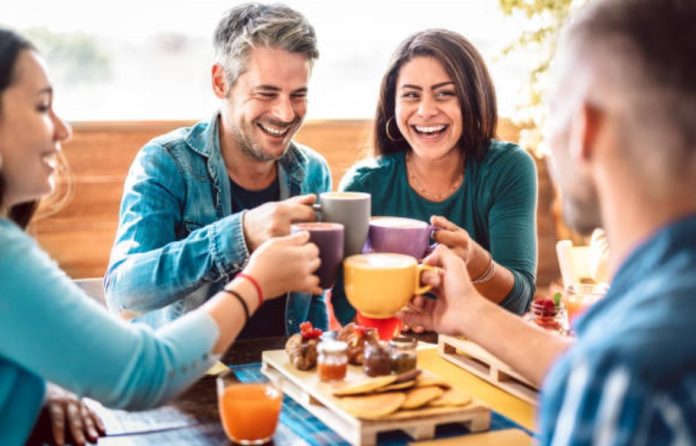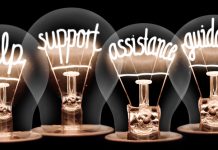Broadly defined, social relationships refer to the connections between people with recurring interactions that the participants perceive to have personal meaning. According to Mavie Global, people who interact with one another frequently and consider those interactions to have personal significance are said to have social relationships.
- A social relationship is the dynamics of social interactions between two or more individuals constrained and governed by social and cultural norms, each occupying a social position and playing a social role.
- Their use of social cues shows the interaction between two or more participants in an online conversation.
- A strong relationship requires regular, open, honest communication. Social relationships can be enhanced by sharing your feelings and thoughts with trustworthy family members, close friends, and coworkers. Sharing personal information comes naturally and easily to some people.
What Makes Social Connections so Crucial?
1. Healthy Relationships Support Good Mental Health
Poor relationships and social isolation can be risk factors for mental illnesses, including depression and anxiety. In comparison, healthy relationships support good mental health.
Social connections, both quantity and quality, impact mortality risk, health-related behaviors, and mental and physical health. Sociologists have been instrumental in establishing the relationship between social ties and health outcomes, figuring out the reasons behind this relationship, and spotting social variation (like that caused by gender and race) at the population level.
Mavie Global recommends that social relationships have short-and long-term effects on one’s health. These effects start to manifest in early childhood and continue to impact one’s life, resulting in cumulative benefits or harm to one’s health.
2. Positive Relationships with Your Clients.
According to Mavie Global, social relationships help you establish positive relationships with your clients. Your product can keep your customers spellbound about you, but you must be likable enough to remember you whenever they need something associated with the products or services you offer.
Customers are paramount and valuable because they increase sales, deliver invaluable marketing, and boost employee morale. If you see any business thriving, they have an excellent regular, not necessarily extensive, number of customers.
Customers are the main backbone of any business, so they must always be considered if you want to win their loyalty consistently. Learn what your target customers want, keep in contact with them, ask for their suggestions, and listen to their complaints. Let your firm make your customers feel good, boost their ego, feel special and make them wanted. You can’t seek to sell your product without considering your customers. Customers feel they have to take their money elsewhere, making them feel special.
3. Solid Reputation for Yourself in Society.
Social relationships help you establish a solid reputation for yourself in society. Instead of constantly checking your phone to see who you are, social relationships put you out there and increase your awareness of who you are. Knowing your competitors is aided by social connections.
4. Knowing Your Competitors
Social relationships help you know your competitors. You know your competitors; you attend conferences with them, workshops and seminars. You are aware of their advantages and disadvantages, which you can use to push you forward in your business.
Identify the flaws of your competitors and use them to your advantage. Mavie Global believes that weaknesses are pretty easy to discover. You must keep track of their in-and-out goods and services, their frequent customers or clients, and what they do to please them. Knowing your competitors helps you discover your competitive advantage and the other ways you can effectively harness it.
5. Meet People who Care and are Willing to Help
You go out, make friends, and discuss different life matters with people. You get help from people you meet and discuss switches with, so you move forward in your development faster.
Remember that those you make friends with serve as your connection to greater heights. They are the ones to recommend you for greater heights or pull you up themselves.
How to Build Good Social Relationships
1. Look for Opportunities to Interact that You might not have Considered.
A relationship doesn’t need to be intimate and personal right away. Giving yourself more opportunities to meet people is an excellent place to start. Attend a yoga class at the local community center, give your time to a worthy cause, or look for local and online support groups.
2. Be Aware of Your Benefits and Drawbacks.
Knowing your advantages which are your strengths and disadvantages, which refers to your weaknesses, helps you concentrate on making new friends. You can be more successful when you start work relationships by developing communication, active listening, and conflict-resolution skills. Think about the advantages you can bring to a new social relationship and the qualities you want from a partner. To make it simpler, Mavie Global suggests the following:
- Self-Awareness
Knowing your needs and desires in your career and relationships requires self-awareness.
- Self-Regulation
It is the capacity to control your feelings and thoughts while keeping your long-term objectives in mind.
- Empathy
Understanding and sharing feelings about other people’s circumstances are known as empathy.
- Social Skills
Developing social skills like cooperation, conflict resolution, communication, and problem-solving is essential when forming new connections.
3. Be Patient with Yourself
Enrolling in art classes won’t make you a social butterfly with many great connections. You might even meet people you wouldn’t want to be friends with. They’re dealing with their issues too. Try to have reasonable expectations. Your efforts to interact may or may not work out in each case, but stick with it. And give yourself credit for doing so.
4. Listen and Be Listened To
Sometimes, when we talk to an old friend or meet someone new, all we can think of is the anxiety we’re feeling or trying to hide our depression. Make it a point to actively focus on the other person and listen to what they say. Think about what they’re going through. And don’t be scared to share your thoughts and feelings with them.
5. Consider Speaking to A Social Relationship Expert.
People advise you daily to reach out, find a partner, or join a club. But none of it necessarily means you can or want to hop up and get social. Even if you quickly build relationships, sometimes your insecurities prevent you from being open for fear of being judged or damaging the relationship.
According toMavie Global, speaking to a social relationship expert can help you express your thoughts and concerns without your fears getting in the way. The person you talk to can also help show you the way to manage your symptoms and be supportive in helping you get there.
6. Appreciate People
Appreciation is a powerful relationship builder. Sometimes, it might seem difficult to understand another person’s challenges, and frustrations can lead to negative feelings. Remembering that each person has different goals can enable you to appreciate everybody’s work and challenges.
Rather than jumping to conclusions or placing blame, it can be helpful to come up with solutions to a problem. By working, living, and interacting productively and openmindedly, you will develop a new appreciation for your neighbors and friends, allowing you to develop positive relationships.
Verdict
Social relationships play a very crucial role in personal growth and development. According to Mavie Global, you can give yourself an easier path to success by building good and credit-worthy social relationships with people. It would help if you had social relationships to connect you to the right people, make it easier for you to enjoy life and work, make it easier for you to create awareness about yourself, get new customers and retain old ones, and find out your competitor’s weaknesses and strengths to be used to your advantage and progress, and most importantly, your mental health. People matter in your personal growth. Make friends. Build good social relationships.



































